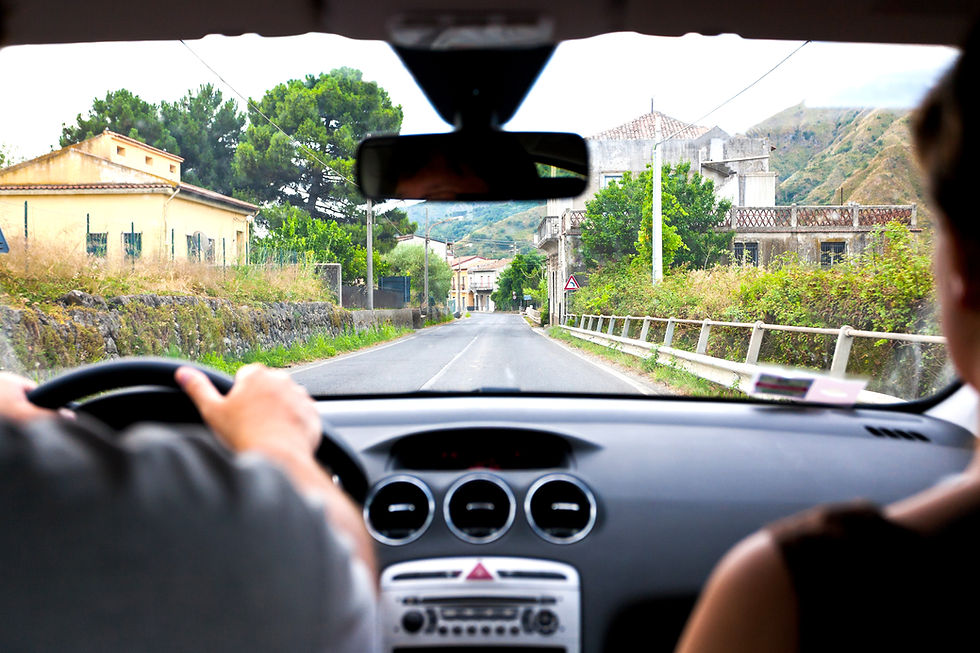Scroll Responsibly: The Good, The Bad, and The Algorithm
- Amber

- Nov 27, 2024
- 3 min read
Ah, social media. A place where you can reconnect with old friends, laugh at memes, and somehow end up comparing your 9-to-5 life to someone’s “influencer retreat” in Bali. (Why does their breakfast look like an art exhibit?) But as much as social media keeps us entertained, a growing body of research is showing that our beloved scrolling habit might also be messing with our mental health.
The Latest Research: Why We Care
A 2024 study published in Cyberpsychology, Behavior, and Social Networking found some eyebrow-raising links between social media use and mental health challenges:
1. More Scroll, More Stress:
People who spent over three hours a day on social media (looking at you, doom-scrollers) were far more likely to experience symptoms of depression and anxiety than those who spent less time online. If you’re thinking, “But that’s my entire evening!”—well, you’re not alone.
2. Body Image Takes a Hit:
Teens and young adults who cut their social media use by 50% for just three weeks reported significantly improved self-esteem and body image. Turns out, seeing a perfectly edited highlight reel of someone else’s life is not the feel-good moment we’ve been telling ourselves it is.
3. Active vs. Passive Use:
Engaging with social media actively (posting, messaging, commenting) tends to be better for mental health than passive scrolling. Think of it like karaoke: way more fun when you’re singing than just sitting there watching everyone else belt out “Don’t Stop Believin’.”
The Age of Algorithms: Why We Feel Hooked
Let’s face it, social media isn’t just a tool—it’s a system. Platforms like Instagram, TikTok, and Facebook are powered by algorithms designed to keep you online as long as possible. The more you scroll, the more ads they show, and the more data they gather.
The downside? These algorithms prioritize sensational or emotionally charged content. You’re more likely to see posts that make you feel envious, anxious, or outraged than ones that inspire calm and confidence. (Because apparently, “here’s my average Tuesday” doesn’t get clicks.) We are served curated content that keeps us scrolling for validation, leaving less time for genuine, face to face connections.
The pressure is real, social media often amplifies the “shoulds” of life. I should be more successful, I should look a certain way, I should own a house by now.
Emotional Dependence on social media is like chasing a sugar high or worse. The user gets quick hits of dopamine and we crash just the same, leaving us craving more. Over time, this cycle can create an addiction to the instant gratification social platforms provide, hijacking our sense of self-worth and tethering it to the approval of others.
5 Ways to Stay Sane on Social Media
1. Control Your Feed:
Follow accounts that bring you joy or inspiration (dog videos, relatable memes, mental health tips). Unfollow anyone who makes you feel less-than. It’s your feed, not a guilt trip!
2. Time Limits Are Your Friend:
Apps like Instagram have built-in timers. Set them, and when the timer says “You’ve hit your limit,” don’t hit snooze.
3. Mind Your Mood:
Pay attention to how you feel after scrolling. Energized? Great. Drained? It’s probably time for a break.
4. Remember: It’s Not Real Life:
Social media is a highlight reel, not the full picture. Most people are not posting their bad hair days, burnt dinners, or existential crises—just the curated, edited version of life.
5. Swap Scrolling for Self-Care:
Instead of spending an hour online, try something offline: read a book, go for a walk, or call a friend. Your mental health will thank you.
The Bottom Line
Social media isn’t evil, but it’s a tool—and like any tool, it can be helpful or harmful depending on how you use it. The key? Be intentional. Use it to connect, laugh, and learn, but know when to log off.
So next time you’re scrolling through endless reels, ask yourself: Am I scrolling, or am I spiraling? And if it’s the latter, maybe it’s time to trade the algorithm for some fresh air—or at least some baby goat videos.




Comments